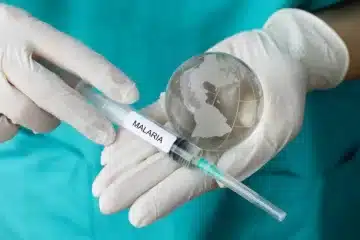What causes Dry Eyes and What are the remedies to Treat Dry Eyes?
Dry eyes
Tears play a vital role for eyes as it helps to lubricate and moisturize your eyes to maintain a clear vision. Dry eyes are a standard condition that happens when your tears aren’t ready to provide adequate lubrication for your eyes. Your eyes may feel sting or burn and can cause uncomfortable sensations, thus leads to inflammation and damage of the eye’s surface.
There are treatments and home remedies for treating your dry eyes, that gives an ideal solution for dry eyes. These treatments include lifestyle changes and eye drops for controlling dry eyes.
Symptoms
The symptoms of dry eyes include:
- Burning or paining sensation
- Stringy mucus
- Sensitive towards light
- Watery eyes or eye irritation
- Blurred vision or eye fatigue
- Redness in your eyes
- Difficult in wearing contact lenses
Causes
Dry Eyes are often caused when there is a lack of balance in the tear-flow system of your eyes but there are other causes that may include:
- Natural ageing process
- Side effects of certain drugs
- Hormone changes,
- Autoimmune disease,
- Inflamed eyelid glands or allergic eye disease.
- Decreased tear production or increased tear evaporation.
The major cause of dry eyes is Decreased tear production and Increased tear evaporation.
Decreased tear production
The circumstances for decreased tear production of your eyes occurs when you are unable to produce enough water or tears, thus this condition is called Keratoconjunctivitis sicca. The common cause of decreased tear production includes:
- Ageing
- Certain medical conditions: Sjogren’s syndrome, allergic eye disease, rheumatoid arthritis, thyroid disorders or vitamin A deficiency
- Certain medications: Drugs for high blood pressure, acne, birth control and Parkinson’s disease etc
- Corneal nerve desensitivity caused by the usage of contact lens.
- Nerve damage caused by laser eye surgery causes dry eyes that are temporary
Increased tear evaporation
Increase tear evaporation occurs when the oil produced by small glands on the edge of your eyelids can become clogged or blocked. The Common causes of increased tear evaporation include:
- Blinking less: Tends to occur with certain conditions, such as Parkinson’s disease
- Eyelid problems: Eyelids turning outward (ectropion) and the lids turning inward
- Eye allergies
- Vitamin A deficiency
- Wind, smoke or dry air
Risk factors and Complications:
The risk factors when you are likely to experience dry eyes include:
- Ageing: People above 50 are affected with dry eyes as the tear production tends to diminish as you get older, thus Dry eyes are more common in people over 50.
- Common amongst women: A lack of tears is more common in women, especially if they experience hormonal changes due to pregnancy, using birth control pills or menopause.
- Vitamin A deficiency: Eating a diet that is low in vitamin A or low in omega-3 fatty acids are at risk of Dry Eyes.
- Wearing contact lenses for a longer period or having a history of refractive surgery.
Complications
People who have dry eyes may experience these complications:
- Eye infections: Without adequate tears, you may have an increased risk of eye infection as tears safeguard or protect the surface of your eyes from infection.
- Damage to the surface of your eyes: Dry eyes may lead to severe eye inflammation, abrasion of the corneal surface, corneal ulcers and vision loss.
- Decreased quality of life: Dry eyes can make it difficult to perform everyday activities, such as reading.
Prevention
To prevent your eyes from Dry eyes is to :
- Avoid air blowing directly in your eyes.
- Advisable to wear sunglasses or other protective eyewear as it can be used as a safety shield to block wind and dry air.
- Take eye breaks during long tasks. Close your eyes for a few minutes or blink repeatedly for a few seconds to help spread your tears evenly over your eyes.
- While working on your computer. Position your computer screen below eye level. This may help slow the evaporation of your tears between eye blinks.
- Eye Drops are helpful in preventing dry eyes, but it is always advisable to consider an eye doctor before using them directly on your eyes.
- Use artificial tears regularly in case If you are suffering from chronic dry eyes, use eye drops even when your eyes feel fine to keep them well lubricated.
Home remedies for Dry Eyes:
- Dry Eyes can be managed at home by frequently washing your eyelids and use eye drops or other products suggested by your doctor that helps to lubricate your eye.
- Washing your eyelids to control inflammation in certain conditions, eyelid inflammation may block the flow of oil to the eye, thus washing your eyelids at regular intervals with warm washcloths or mild soap can cleanse your eyes.
- If your dry eyes are being caused by environmental factors avoiding exposure to smoke and protecting your eyes with eyewear during outdoor activities.
- A humidifier at home can put moisture in the air, which may help to reduce dry eyes.
- Intake of omega-3 fatty acid supplements and Vitamin A are helpful for people with dry eyes.
When to see a doctor
If you are suffering from Dry Eyes for a prolonged period with the signs and symptoms including red irritated, tired or painful eyes, then it is always advisable to consult an eye specialist. Your doctor will advise you to undergo the following:
- A comprehensive eye exam that includes a complete history of your overall health and your eye health can help your doctor diagnose the cause of your dry eyes.
- A test to measure the volume of your tears using the Schirmer test. And also to determine the quality of your tears, surface condition of your eyes. With a detailed examination of these test, your doctors suggest proper medications and treatment for your dry eyes.


















